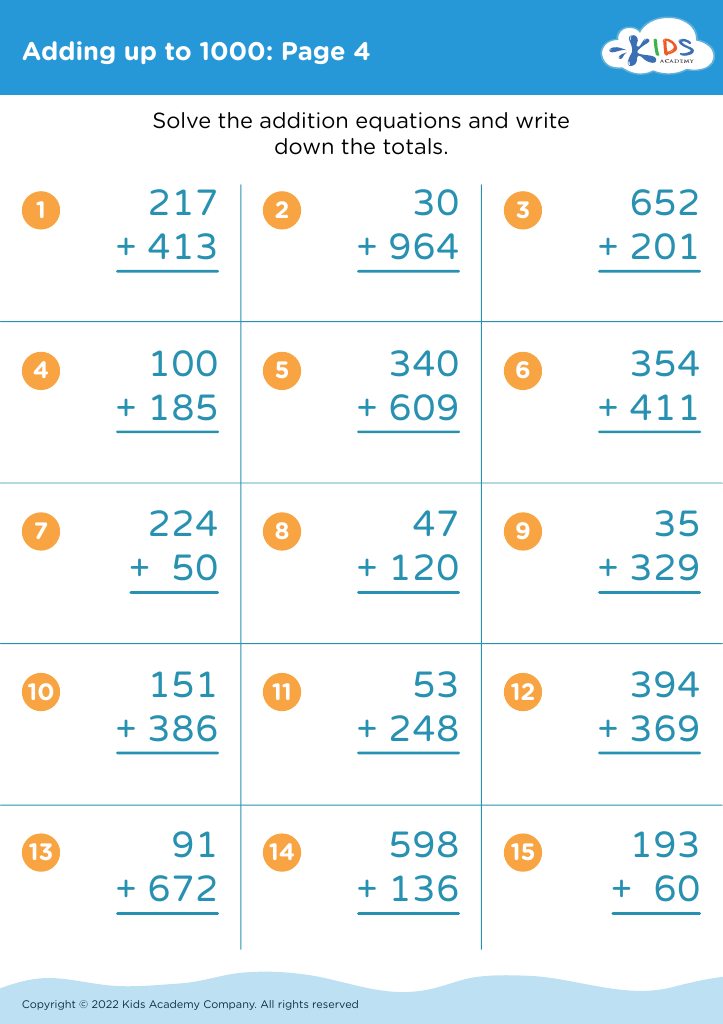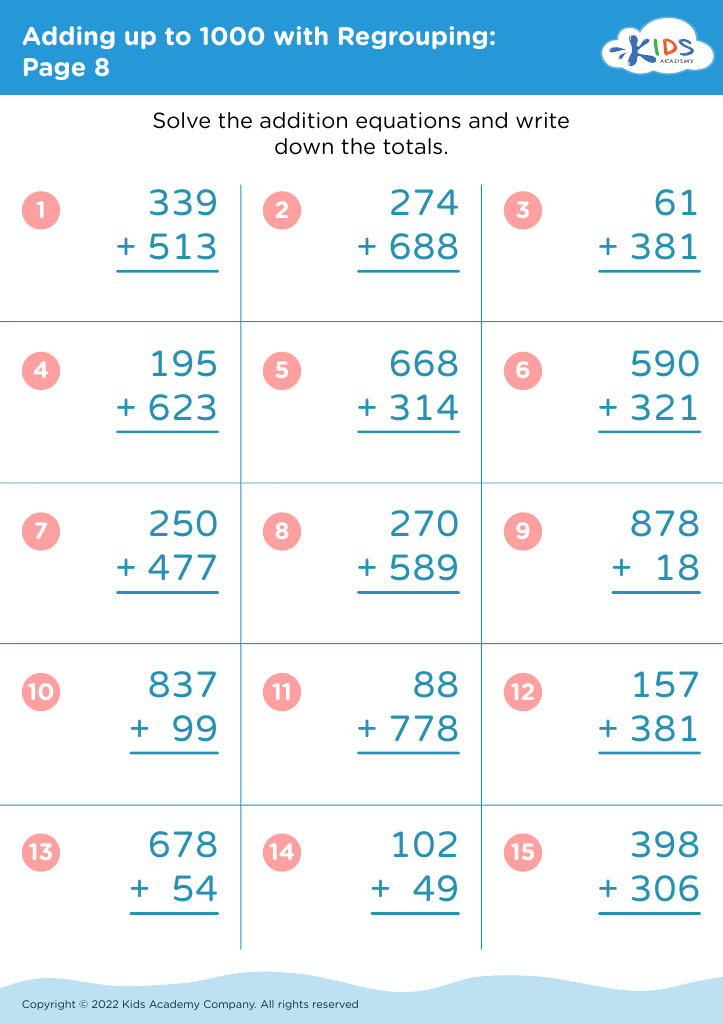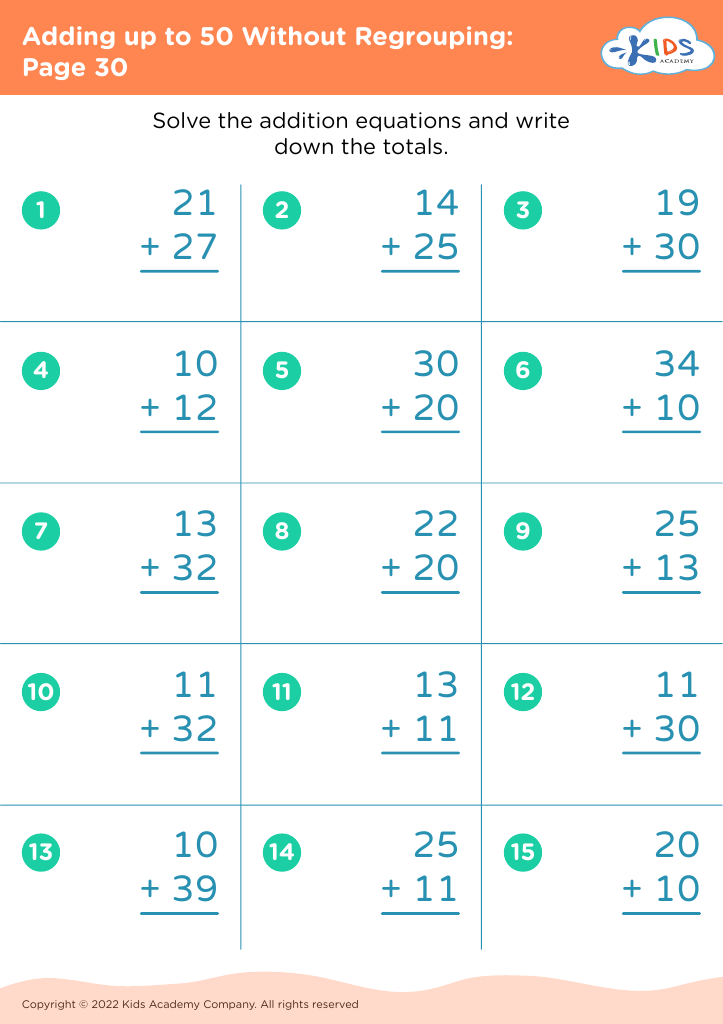Understanding addition Addition Worksheets for Ages 7-8
8 filtered results
-
From - To
Welcome to our "Understanding Addition Worksheets" for ages 7-8, designed to enhance foundational math skills through engaging and interactive exercises. This collection of printable worksheets focuses on key concepts of addition, helping young learners master the basic operations. Each worksheet uses colorful visuals and real-life contexts to make math fun and relatable. Children will practice adding single and double digits, exploring number combinations, understanding the associative property, and solving word problems. With a mix of challenge and excitement, these resources are perfect for reinforcing ideas learned in the classroom, ensuring confidence and competency in addition. Start boosting your child's math journey today!
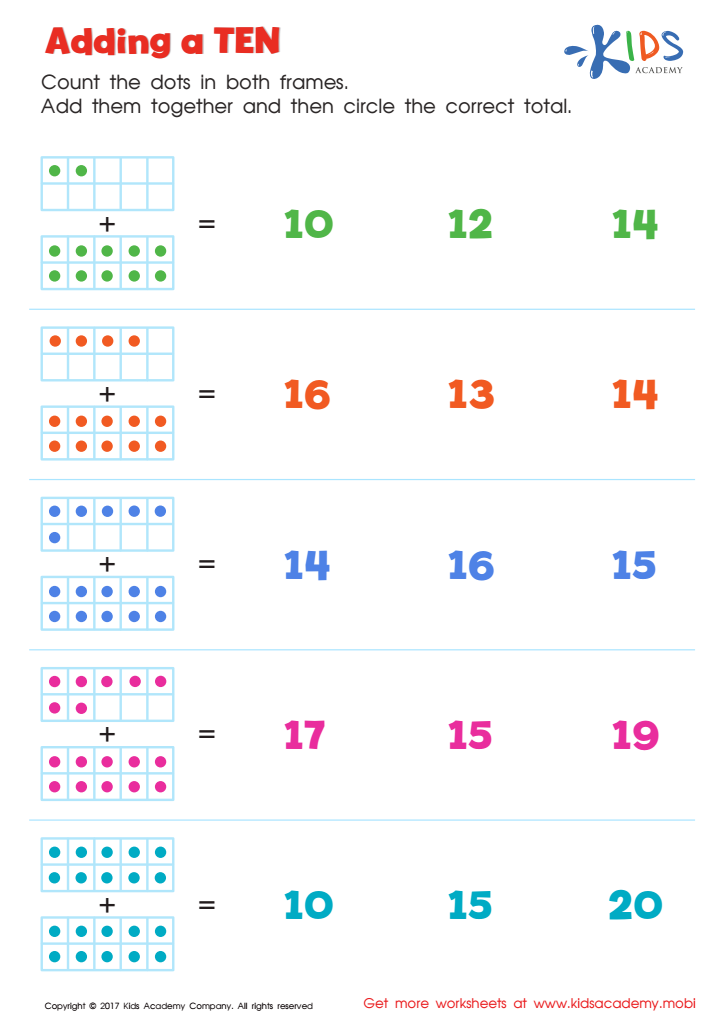

Adding a Ten Worksheet
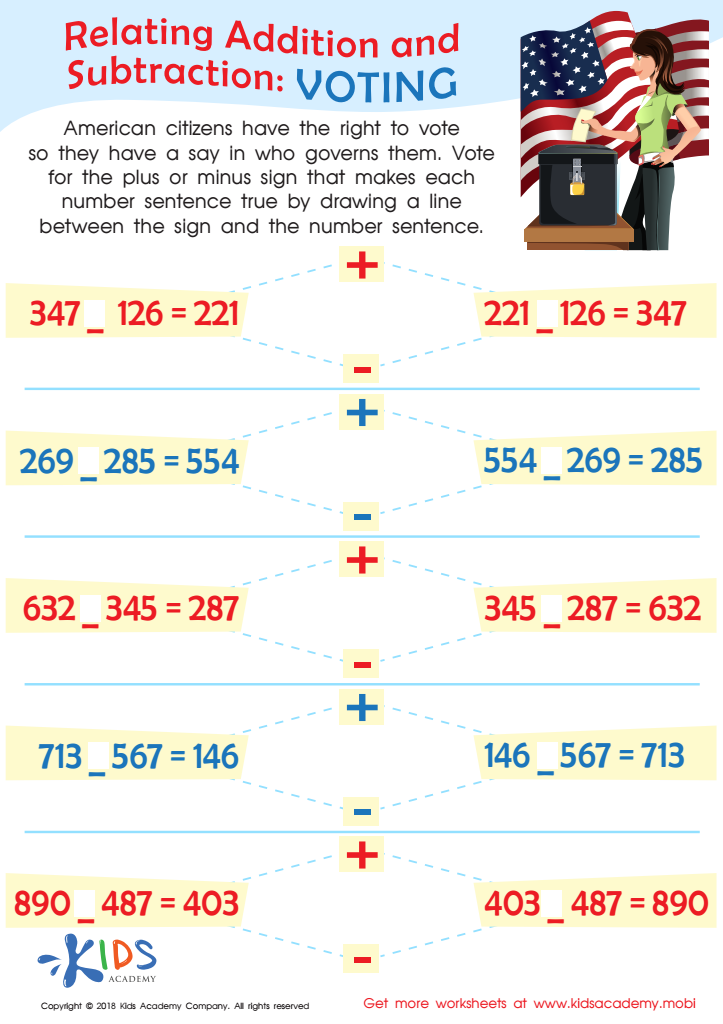

Voting Worksheet
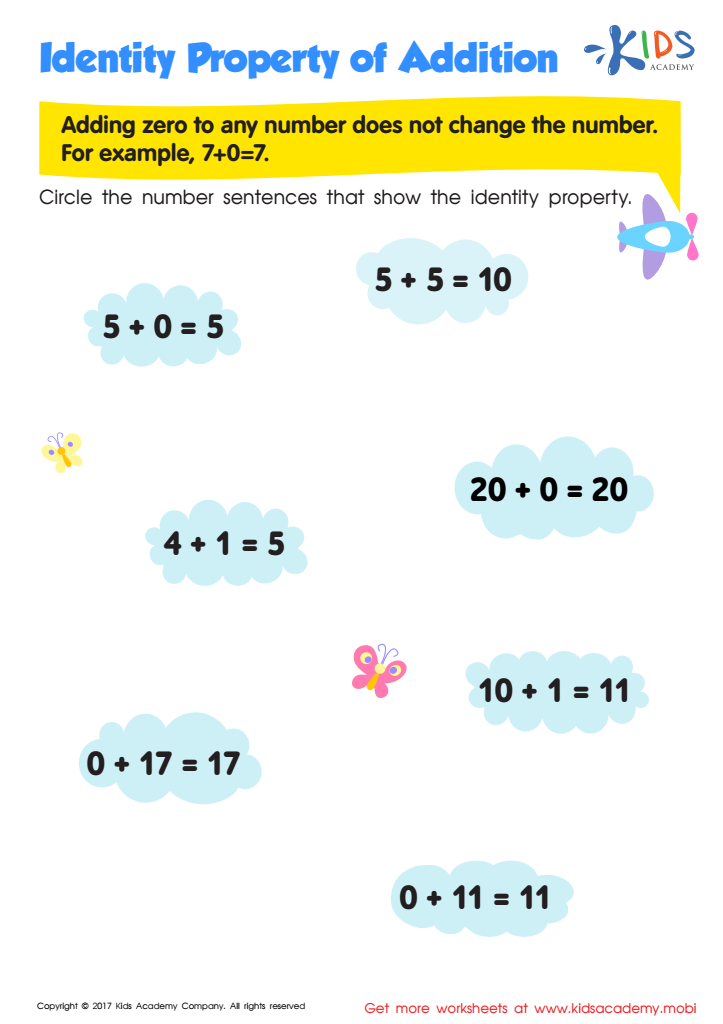

Identity Property of Addition Worksheet
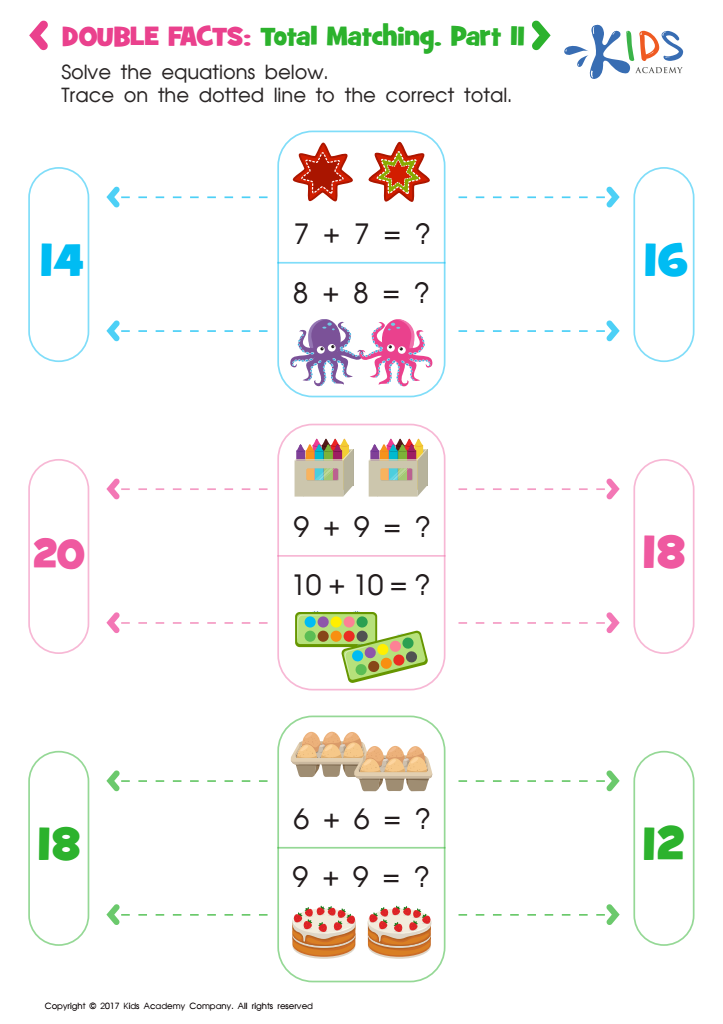

Double Facts: Total Matching 2 Worksheet
Understanding addition is crucial for children aged 7-8, as it serves as a foundational skill for their future learning in math and everyday problem-solving abilities. At this age, children typically transition from basic addition strategies to more complex concepts, which means the understanding they gain forms the building blocks for more difficult operations such as multiplication and subtraction.
For parents and teachers, focusing on addition can significantly enhance a child’s number sense and overall confidence in their mathematical abilities. Mastering addition not only boosts a child's academic performance but also promotes critical thinking; for instance, kids start recognizing patterns, devising strategies, and tackling word problems with ease.
Additionally, a strong grasp of addition encourages collaborative activities and discussions, fostering social skills necessary for teamwork. As children work through addition problems—whether it be through games, manipulatives, or real-life scenarios—they cultivate perseverance when faced with challenges.
Beyond academia, the importance of addition transcends the classroom; children encounter addition in everyday situations, from calculating costs during shopping trips to sharing snacks. By prioritizing a deep understanding of addition, parents and teachers play a crucial role in preparing children for a successful future in mathematics and life skills typically needed at and beyond this age group.


 Assign to My Students
Assign to My Students
